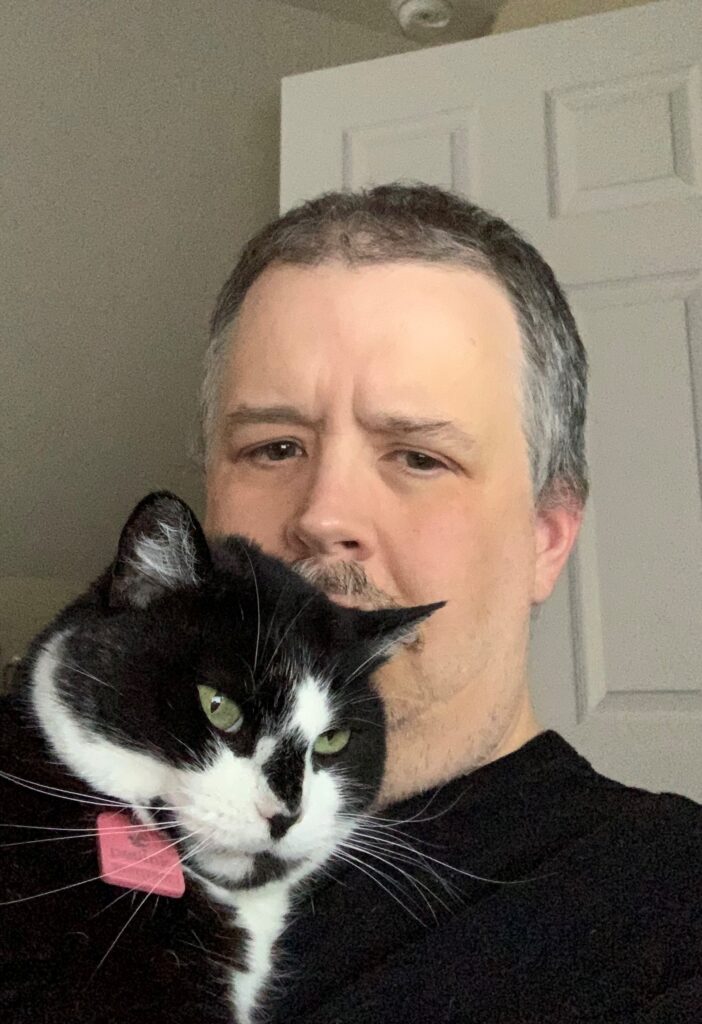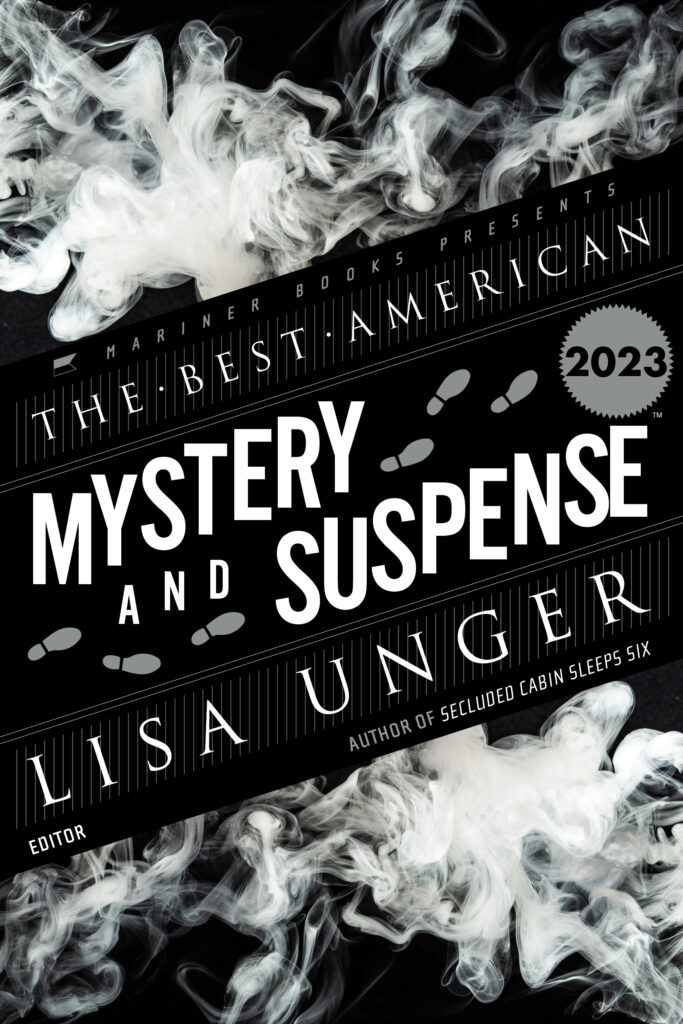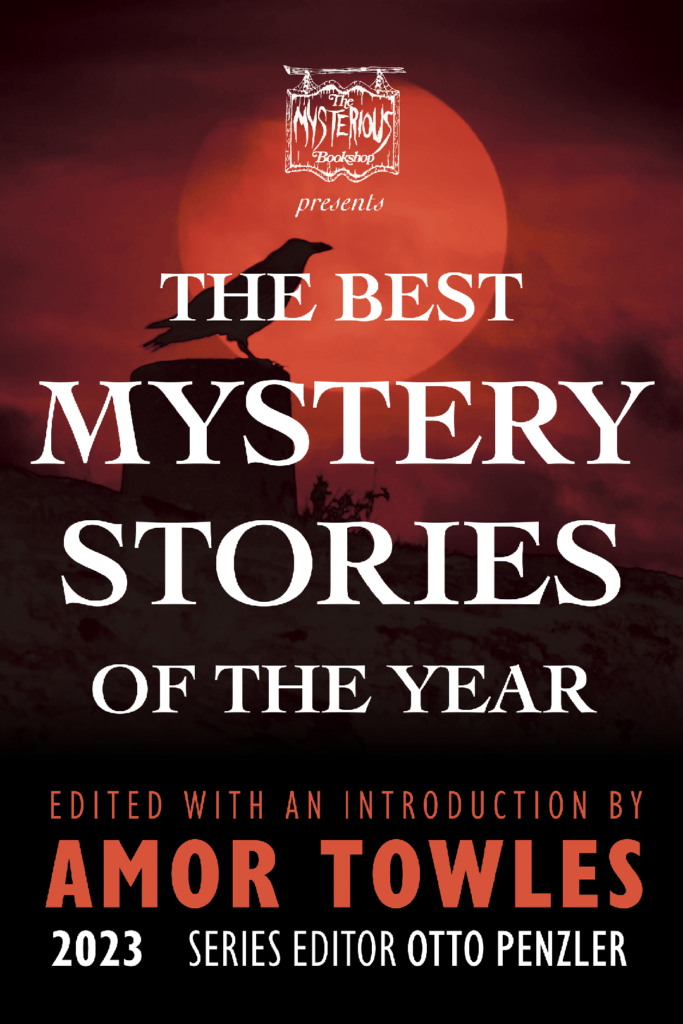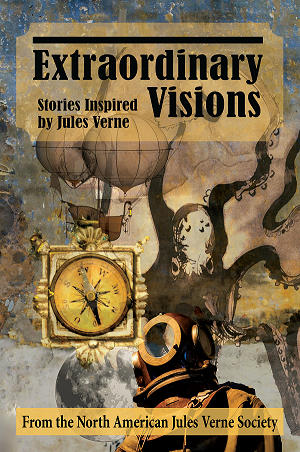Readers will recall that the anthology Extraordinary Visions: Stories Inspired by Jules Verne came out in December. I’ve offered to interview authors of stories in that volume, and some have accepted. Today I bring you the first of those.
Joseph S. Walker’s short fiction has been published in Alfred Hitchcock’s Mystery Magazine, Ellery Queen’s Mystery Magazine, Mystery Weekly, Tough, and many other magazines and anthologies. His story “Crime Scene” is included in the 2023 editions of both The Best American Mystery and Suspense and The Mysterious Bookshop Presents the Best Mystery Stories of the Year (marking his third consecutive appearance in this collection). He has been nominated for the Edgar Award and the Derringer Award and has won the Bill Crider Prize for Short Fiction. He also won the Al Blanchard Award in 2019 and 2021.
Here’s the interview:
Poseidon’s Scribe: How did you get started writing fiction? What prompted you?
Joseph S. Walker: I wanted to write fiction from a very young age. It was in large part because of that desire that I majored in English, eventually getting a PhD in American Literature. In retrospect, though, this may have been a mistake, at least for me. Studying literature in such a rigorous way made actually writing fiction seem like an overwhelming prospect. Then, too, it has a tendency to make you feel like you should be aiming at mainstream or literary fiction, or whatever label you want to put on it. There’s been progress on that front, but genre writing is still treated as something of a second-tier arena in much of the academy. So for years I told myself I was a writer, but my time was mostly spent on academic articles, and a few rather dour, realistic stories I labored over for years.
It wasn’t until my 40s that I decided that if I wanted to be a writer, at some point I had to actually write something. I also decided that it didn’t have to be agonizing. It could be fun. It should be fun. I started writing things that I enjoyed writing, in the fields (mostly mystery and crime) that I enjoyed reading. One of the first stories I wrote with this mindset was accepted to Alfred Hitchcock’s Mystery Magazine, and from that point on all I wanted to do was write. I’m published more than eighty short stories now, and I just want to keep going.
P.S.: Who are some of your influences? What are a few of your favorite books?
J.S.W.: In terms of the actual style of my writing, I think the biggest influence would be Robert B. Parker, who created the private eye Spenser. I look at some of my earlier stories now, and it’s almost like I’m writing a pastiche of one of his Spenser novels. I think I’ve come a way in developing my own voice, but the echoes are still there. That said, the writer who made me want to be a writer was Harlan Ellison. He’s usually classified as a science fiction writer, though he also wrote a large number of crime stories. I loved his writing, and his essays especially have stayed with me. He made being a writer seem like a privilege, an honor, an obligation, and a lot of fun.
A few favorite books off the top of my head: Strange Wine (Harlan Ellison); When the Sacred Ginmill Closes (Lawrence Block); Lincoln in the Bardo (George Saunders); Possession (A. S. Byatt); A Catskill Eagle (Robert B. Parker); Last Chance to See (Douglas Adams); I’ll Be Gone in the Dark (Michelle McNamera); Devil in a Blue Dress (Walter Mosley)
P.S.: Your short stories tend to be about crime and mystery. What attracted you to these genres?
J.S.W.: Partly, it’s just the fact that it’s the genre I’ve always loved reading. I think my early reading history is shared with many of my fellow mystery writers: the Hardy Boys and the Three Investigators, then on to Doyle and Christie, then Hammett and Chandler, and so on up to Gillian Flynn and S. A. Cosby. And then, writing stories like this is fun for me. Starting a new story is always hard, but if you’re lucky there comes a moment when something clicks and the words seem to tumble onto the page. For me, that happens most often when I’m writing crime.
P.S.: You’ve got a story appearing in The Best American Mystery and Suspense, coming out in October. Please give us a hint about what to expect in this story.
J.S.W.: The story is question is “Crime Scene,” which originally appeared in Malice in Dallas, an anthology from the North Dallas chapter of Sisters in Crime. In my story, a semi-retired assassin takes an assignment to kill a prominent businessman, but the job has to be done in Dealey Plaza, on November 22, at a ceremony marking the anniversary of the Kennedy assassination. The story was my response to seeing Dealey Plaza in person for the first time, and being struck by how different it seemed from every picture of the area I’d ever seen.
Having the story selected for The Best American Mystery and Suspense (by series editor Steph Cha and guest editor Lisa Unger) is a true honor, especially since I’ve been faithfully buying every volume of this series since it was launched, as Best American Mystery Stories, back in the 1980s. As it happens, “Crime Scene” was also selected for the upcoming volume of the other annual best-of anthology in my field, The Mysterious Bookshop Presents the Best Mystery Stories of the Year (series editor Otto Penzler, guest editor Amor Towles). To the best of my knowledge, it’s the first story to be selected for both series!
P.S.: In what ways are your stories different from those of other crime and mystery fiction authors?
J.S.W.: This is probably a question which others are better suited to answer. I don’t know that writers are necessarily the best judges of their own work. That said, I think if there’s anything that distinguishes many of my stories, it would be an underlying concern with isolation and loneliness. My characters tend to be desperate people who can perhaps be saved if they can forge one genuine relationship with another person.
P.S.: Congratulations on winning the newly-instituted Bill Crider Prize for Short Fiction. Tell us about your story “The Last Man in Lafarge,” and about the experience of winning the award.
J.S.W.: The Bill Crider Prize was given for the first time at the 2019 Bouchercon, held in Dallas. I was very proud to win the award, especially since the contest was judged by Linda Landrigan and Janet Hutchings, the editors of, respectively, Alfred Hitchcock’s Mystery Magazine and Ellery Queen’s Mystery Magazine. At the time, there very much seemed to be a plan that the award would be given every year in honor of Mr. Crider, a prolific and skilled mystery writer. Unfortunately, in subsequent years this plan seems to have fallen by the wayside, perhaps in part because of the pandemic, which caused the 2020 and 2021 Bouchercons to be held in reduced form online. It’s possible I will go down as the only winner of the Crider Prize, but I very much hope the award does return.
Winning the award meant I got to attend my first Bouchercon, where I got to rub elbows with many of my favorite writers, meet some heroes, and make a lot of new friends. I left feeling determined to attend every year, not knowing that the next in-person convention wouldn’t be until three years later in Minneapolis.
As for “The Last Man in Lafarge,” it remains one of my favorites among my stories. It’s about a sheriff in a dying Texas town, a bartender with a mysterious past, and a prodigal son with the kind of secret that can get a person killed.
P.S.: You’ve won the Al Blanchard award for best New England-based crime stories twice! Once for your story, “Haven,” and later for your story “Herb Ecks Goes Underground.” What were those experiences like?
J.S.W.: Deeply gratifying! In 2021, a week after going to Dallas for Bouchercon, I got to go to Boston to attend the New England Crime Bake, a much smaller and more intimate mystery convention, to collect this award. Once again I had a fantastic time, and the experience only deepened my sense of having found my community among my fellow mystery writers. Unfortunately I wasn’t able to attend when I won the prize again in 2023, but it’s a wonderful contest, and I intend to keep entering every year.
P.S.: What are the easiest, and the most difficult, aspects of writing for you?
J.S.W.: The most difficult part, for me, is always actually starting. That applies to both starting a completely new story, and simply sitting down to start a writing session. Sitting at a computer with internet access, I can find 5000 ways to procrastinate before I actually manage to force myself to put something on the page. Once over that initial hump, things get—well, I won’t say easy, because it’s never easy. But easier.
As I say, no part of the process is easy. If there’s an area where I feel least like I’m fighting my way uphill, it’s probably writing dialogue. I just find that to be enjoyable, though I often get carried away and have to cut back on it in revision.
P.S.: Tell us a little about your story, “The Dominion of All the Earth,” in the Extraordinary Visions anthology. Do you consider it a departure from your usual story type, or a typical representative of it?
J.S.W.: “The Dominion of All the Earth” is very much a departure from my usual writing, which is a big part of the reason I was interested when I saw the call for stories. I like to occasionally challenge myself to do something that isn’t a crime story set in the present day. Seeing the call also gave me a strong sense of nostalgia, because I read and greatly enjoyed many of Verne’s novels in my youth. I figured there was a good chance that many, if not most, of the submitted stories would take 20,000 Leagues Under the Sea as their starting point, since Nemo is such a fascinating figure. That meant it would probably be a good idea to use a different Verne work, and I remembered that my other favorite was A Journey to the Center of the Earth. I reread the book, for the first time in decades, and thought there was a story to be told about how the subterranean world would absorb, and ultimately respond to, the damage done by the explorers from the surface world. In my story, it’s been fifty years since the excursion underground, and the response is finally coming.
P.S.: What is your current work in progress? Would you mind telling us a little about it?
J.S.W.: I write exclusively short stories (at least so far!), so what I’m working on changes very often. This is actually a big part of what I like about writing short stories. Instead of spending months, if not years, on a single narrative—and then waiting more years for publication—I can be working on something new virtually every week. If I write a story that’s too dark, I can follow it up with one that’s mostly humorous. Right at this moment, for example, I’m working on a story for a hardboiled anthology of 20s private eye stories, but I’m already sketching out an idea for a farcical heist story with a holiday theme.
I can say that I have some stories coming this year that I’m very proud of!
Poseidon’s Scribe: What advice can you offer aspiring writers?
Joseph S. Walker: It may sound simplistic, but the best advice is the simplest: write. I started being a productive writer the moment I stopped thinking about how great it would be to be a writer, and started actually writing. Put your ass in the chair and your fingers on the keys. Keep in mind that the real writing happens in the process of revision. I find this realization tremendously liberating. It means that I can throw virtually anything down on the page, knowing I’ll have the chance to come back later and work on it more. It gives me the freedom to be terrible, which liberates me from the burden of aiming for great.
Thanks, Joe.
Readers wanting more information about Joseph S. Walker can visit his website and follow him on Twitter and Amazon.




